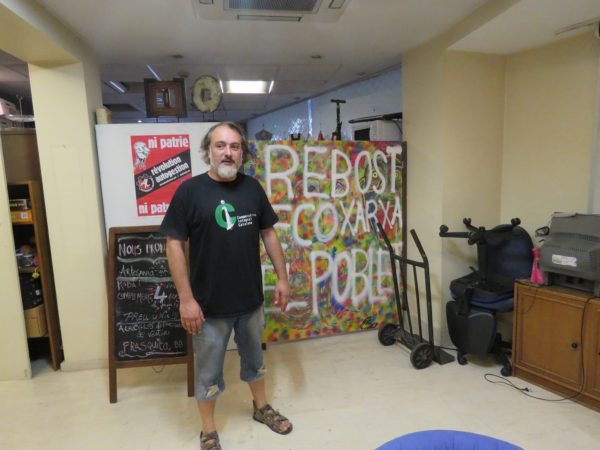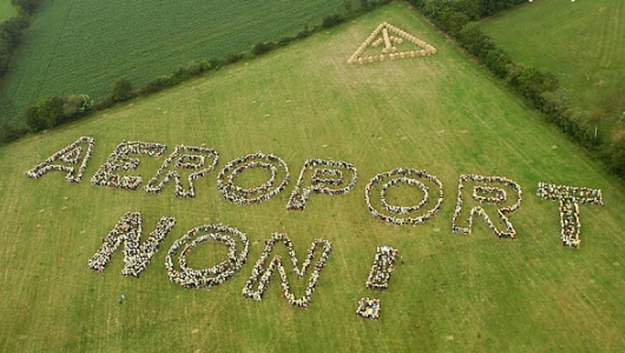The search for alternatives is on. As the world grapples with the multiple crises of ecological unsustainability, poverty, food and water insecurity, and economic collapse, there is urgency to forge paths of human well-being that are equitable and ecologically sustainable. A large number of such alternatives are already being practiced in many countries, including sustainable food production, holistic rural development, sustainable cities, community-based conservation, meaningful educational and health security,decentralized governance, economic democracy, and others.These point to a future based on a new paradigm: Radical Ecological Democracy (R.E.D.). This is an evolving framework of governance in which each person and community has access to decision-making forums of relevance to them, and in which the decisions taken are infused with ecological and cultural sensitivity, and socio-economic equity. The RED framework has also been evolving through widespread discussions with grassroots groups and civil society, including the Vikalp Sangam process, where eco-swaraj (ecological self-rule) is an evolving framework.
Human well-being can be achieved without endangering the earth and ourselves, and without leaving behind half or more of humanity. But for this to happen, the notion of well-being itself needs rethinking, away from market-led dreams of ever-increasing material accumulation. If well-being is about having secure ways of meeting basic needs, being healthy, having access to opportunities for learning, being employed in satisfactory and meaningful tasks, having good social relations, and leading culturally and spiritually fulfilling lives, there is no reason this has to be achieved through ecological devastation, and no reason why only some humans get to enjoy it.
Broadly, such a framework of human well-being could be called Radical Ecological Democracy (RED): a socio-cultural, political and economic arrangement in which all people and communities have the right and full opportunity to participate in decision-making, based on the twin fulcrums of ecological sustainability and human equity. It is important to define these terms: ecological sustainability is the continuing integrity of the ecosystems and ecological functions on which all life depends, including the maintenance of biological diversity as the fulcrum of life; human equity, is a mix of equality of opportunity, access to decision-making forums for all, equity in the distribution and enjoyment of the benefits of human endeavour, and cultural security.
The Radical Ecological Democracy process began as part of the Peoples’ Sustainability Treaties at the Rio+20 Conference in 2012 (see http://www.radicalecologicaldemocracy.org/treaty/), and involves the
following activities:
a website, www.radicalecologicaldemocracy.org, dedicated to carrying articles, stories, conversations, events and resources relating to transformative, systemic alternatives around the world;
ongoing dissemination of material and discussion on various related issues, on a dedicated list, [email protected];
at attempt to connect with alternative movements in different parts of the world, to exchange experiences, build more collective strength; linking to the Vikalp Sangam process in India, there is a proposal for a Global
Alternatives Confluence (under discussion in late 2018).
RED is based on a set of principles, most of which are very different if not outrightly opposed to the principles (or lack thereof) displayed in today’s dominant system. Adapted from the Peoples’ Sustainability Treaty on RED, these are as follows:
Principle 1: Ecological integrity and limits
The functional integrity and resilience of the ecological processes, ecosystems, and biological diversity that is the basis of all life on earth, respecting which entails a realization of the ecological limits within which human economies and societies must restrict themselves.
Principle 2: Equity and justice
Equitable access of all human beings, in current and future generations, to the conditions needed for human well-being—socio-cultural, economic, political, ecological, and in particular food, water, shelter, clothing, energy, healthy living, and satisfying social and cultural relations—without endangering any other person’s access; equity between humans and other elements of nature; and social, economic, and environmental justice for all.
Principle 3: Right to meaningful participation
The right of each person and community to meaningfully participate in crucial decisions affecting her/his/its life, and to the conditions that provide the ability for such participation, as part of a radical, participatory democracy.
Principle 4: Responsibility
The responsibility of each citizen and community to ensure meaningful decision-making that is based on the twin principles of ecological integrity and socio-economic equity, conditioned in the interim by a ‘common but differentiated responsibility’ in which those currently rich within the country take on a greater role and/or are incentivised or forced to to give up their excessively consumptive lifestyles in order for the poor to have adequate levels of human security. This principle should also extend to the impact a country has on other countries, with a ‘do no harm’ component as a basic minimum component.
Principle 5: Diversity
Respect for the diversity of environments and ecologies, species and genes (wild and domesticated), cultures, ways of living, knowledge systems, values, economies and livelihoods, and polities (including those of indigenous peoples and local communities), in so far as they are in consonance with the principles of sustainability and equity.
Principle 6: Collective commons and solidarity
Collective and co-operative thinking and working founded on the socio-cultural, economic, and ecological commons, respecting both common custodianship and individual freedoms and innovations within such collectivities, with inter-personal and inter-community solidarity as a fulcrum.
Principle 7: Rights of nature
The right of nature and all its species, wild or domesticated, to survive and thrive in the conditions in which they have evolved, along with respect for the ‘community of life’ as a whole.
Principle 8: Resilience and adaptability
The ability of communities and humanity as a whole, to respond, adapt, and sustain the resilience needed to maintain ecological sustainability and equity in the face of external and internal forces of change, including through respecting conditions, like diversity, enabling the resilience of nature.
Principle 9: Subsidiarity and ecoregionalism
Local rural and urban communities, small enough for all members to take part in face-to-face decision-making, as the fundamental unit of governance, linked with each other at bioregional, ecoregional and cultural levels into landscape/seascape institutions that are answerable to these basic units.
Principle 10: Interconnectedness
The inextricable connections amongst various aspects of human civilization, and therefore, amongst any set of ‘development’ or ‘well-being’ goals—environmental, economic, social, cultural, and political.
Taking the above principles together (and undoubtedly others that will be added on its evolutionary path), RED is a continuous and mutually respectful dialogue amongst human beings, and between humanity and the rest of nature. It is also not one solution or blueprint, but a great variety of them. These would include systems once considered valuable but now considered outdated and ‘primitive’: subsistence economies, barter, local haat-based trade, oral knowledge, work-leisure combines, the machine as a tool and not a master, local health traditions, handicrafts, learning through doing with parents and other elders, frowning upon profligacy and waste, and so on. This does not mean an unconditional acceptance of traditions, but rather a re-considered engagement with the past, the rediscovery of many valuable practices which seem to have been forgotten and building on the best of what traditions offer.
To know more please visit: http://www.radicalecologicaldemocracy.org/





